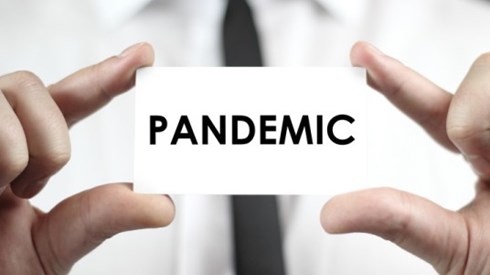Regulators Expect COVID-19 To Prompt Pandemic Coverages in Captives

July 01, 2020

Captive insurance companies may serve as valuable tools for many organizations addressing pandemic-related risks in the wake of COVID-19, but regulators will closely scrutinize captives' pandemic coverage plans.
"One of the most important questions is what triggers coverage," said Dave Provost, Vermont's deputy commissioner of captive insurance.
Mr. Provost and other captive regulators spoke recently on a webinar presented by the International Center for Captive Insurance Education (ICCIE) titled "Captive Solutions after the Coronavirus Storm: A Regulator Roundtable Discussion."
Debbie Walker, senior deputy commissioner in the North Carolina Department of Insurance, said her office would review plans to write pandemic-related coverages in captives in much the same way they'd review other coverage lines.
"Similar to the way we review other coverages, we'd want to understand the underwriting, the actuarial, the feasibility study, make sure the coverage limits are reasonable, make sure the level of capital is appropriate for the risk that is being taken on by the captive, and that the risks are properly priced," said Ms. Walker.
The state would also consider such factors as the language in the policy form about triggering events and what specifically is covered, as well as any reinsurance, she said.
Ms. Walker said there are captives domiciled in North Carolina that were already writing business interruption policies that addressed pandemics in such areas as loss of key customers or suppliers, political risk, and supply chain interruption.
"Those policies in some cases cover pandemics," she said. "One very positive thing about a captive insurance company is that the insured can obtain exactly the coverage that it needs and have the policy written to meet their needs."
John Talley, captive program manager in Missouri's Department of Commerce and Insurance, said he would consider any reinsurance coverage for the pandemic coverage, including whether there might be a federal pandemic risk backstop that would involve captives.
Mr. Talley said there are Missouri captives that provided business interruption policies that covered illnesses, though not specifically pandemics.
"It will be interesting to see in the future what this entails," he said. "More than likely, I would like to see or have a description of the type of coverage that they're offering in their policies and go forth from there." Mr. Talley said he suspects there will be interest in writing pandemic coverages in captive insurers in the future as businesses discover their current pandemic losses aren't covered in traditional business interruption policies.
"We'll very much work with any captive that wants to go with the pandemic coverage in the business interruption insurance," Mr. Talley said.
Dave Piner, Michigan's director of captives, sees price as the critical component for any pandemic coverages in captives.
"In summary, it all comes down to the price," Mr. Piner said. "A captive can underwrite an unusual amount of coverage as far as variety goes, so certainly if they want to do something akin to a business interruption policy that wouldn't exclude pandemics, fine, but let's see how much you're going to charge for that."
Mr. Piner said there are some Michigan captives writing business interruption coverage with the standard pandemic exclusion. "Some of those parties came back to us thinking that we would allow them to pay that claim even though there was that exclusion and we had to tell them we would not grant that."
The Michigan regulator said he suspects that any captives that do write pandemic-related coverages are most likely to be "larger rather than smaller."
The regulators were also asked about possible solutions they might consider for businesses facing capital constraints as they look to form captives.
Mr. Piner noted that in Michigan the minimum capital requirement is $150,000, which shouldn't be particularly burdensome. "While I'm not saying we wouldn't entertain some sort of creative idea for someone interested in forming a captive who didn't have at least $150,000, we're certainly not interested in any type of race to the bottom just to get more captives in our state," he said.
While saying regulators in his state have some room to be flexible, Travis Wegkamp, Utah's director of captive insurance, said, "The minimum unencumbered capital is not potentially the best area to be creative."
Timae Flood, assistant director, insurance supervision at the Bermuda Monetary Authority, noted that each of the domicile's five captive classes has its own minimum capital requirements. "We're fairly open to discussing the options presented, provided we maintain our mandate of providing the maximum level of policyholder protection in every scenario," she said.
Mr. Provost said Vermont's statute provides little flexibility for the minimal capital requirement, but once you move beyond the minimum there is some room for flexibility, particularly for single-parent captives.
"We've got some companies with art collections and airplanes and buildings," he said. He cautioned, though, that the captive's parent should consider the liquidity of those assets.
"Are those assets going to be available to pay claims if and when that time comes?" he asked. "Because they're not likely to be liquid, and in the worst case they're not likely to be liquid when you want them."
Other regulators on the panel similarly suggested they'd be willing to offer some flexibility, but that ultimately they'd have to be convinced the capital is solid and sufficient to support the captive insurance company's business plan.
Lesley Thompson, ICCIE board president and vice president—insurance management at Willis Towers Watson, moderated the webinar.
July 01, 2020



